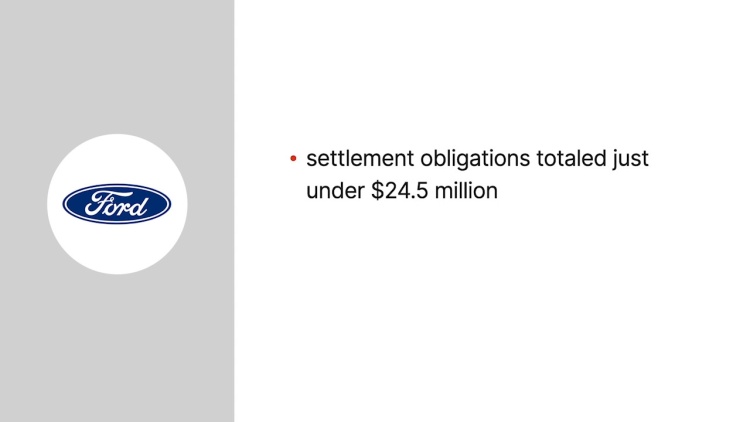Ford Motor Co. v. Commissioner
United States Court of Appeals for the Sixth Circuit
71 F.3d 209 (1995)

- Written by Sean Carroll, JD
Facts
Ford Motor Company (plaintiff) entered into a series of settlements for tort claims brought against it after cars it manufactured were in accidents. The settlements required Ford to make periodic payments over terms of varying years. Some of the periodic payments were to be made for the recipient’s lifetime. None of the payment term lengths were shorter than 40 years. Ford purchased annuity contracts, with the annual payments equaling Ford’s annual payments to the settlement recipients. In 1980, Ford deducted from its tax liability the entire amounts of the settlement payments, including all those payments to be made in subsequent years. For those payment term lengths that were dependent on the life of the recipient, Ford used the recipients’ average life expectancies to compute its deduction. Ford also reported as income the annuity payments it received. The Internal Revenue Service (IRS) (defendant) found that Ford’s accrual-based accounting did not clearly reflect its income and disallowed Ford’s claimed deductions that were in excess of its annuity income. The IRS imposed a different accounting method, permitting Ford to deduct only its annuity payments. Ford filed a petition in United States Tax Court challenging the IRS determination. The court affirmed the IRS decision. Ford appealed.
Rule of Law
Issue
Holding and Reasoning (Milburn, J.)
What to do next…
Here's why 907,000 law students have relied on our case briefs:
- Written by law professors and practitioners, not other law students. 47,100 briefs, keyed to 996 casebooks. Top-notch customer support.
- The right amount of information, includes the facts, issues, rule of law, holding and reasoning, and any concurrences and dissents.
- Access in your classes, works on your mobile and tablet. Massive library of related video lessons and high quality multiple-choice questions.
- Easy to use, uniform format for every case brief. Written in plain English, not in legalese. Our briefs summarize and simplify; they don’t just repeat the court’s language.





